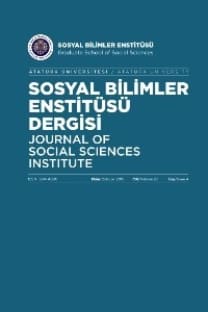Ru yet-i hilâl çerçevesinde hadisleri yeniden okuma
Günümüzde bir hadisin değerlendirilmesi yapılırken, Hz. Peygamber in maksadını, hadislerin vürud sebeplerini, hadislerdeki mecâz , teşbih ve kinâye gibi edebî sanatları göz önünde bulundurmak, aynı konuda gelen hadislerin tamamını bir arada incelemek ve en önemlisi hadisleri Kur ân perspektifinden ele almak gibi bir takım yöntemlere başvurma gereği vardır. Bütün bu faaliyetlerin ardından elde edilen sonucun günümüze uyarlanması konusunda da ayrıca çaba sarfedilmelidir. Ramazan ve bayramlara başlarken hilali gözetlemekle ilgili hadisleri değerlendirirken de bu prensiplerden hareket etmeli, konuyla ilgili Kur an ayetleri ve diğer hadisler birlikte ele alınmalı ve bugün için en doğru yöntem seçilmelidir.
Rereading the hadith from the perspective of observing the crescent
While evaluating the hadith, it is necessary to consider things such as understanding the Prophets intention, the reasons why those things are told, understanding the literary elegance used such as parables, comparisons and metaphors, also it is necessary to investigate all the Prophets sayings together as a whole and last but the most importantly evaluating all the sayings from the Qurans perspective. After having utilized all of the above techniques, extra effort must be used for the application of the sayings to current situations. The above principles must be used while evaluating the hadith about observation of the crescent and determining the exact times of the Ramadhan and the Eids, all of the versus and the hadith must be reconsidered all together as a whole in identifying the best method for determining the exact start and finish times of the Ramadhan and Eid.
___
- Bakhit, Shaykh Muhammad Bakhit al-Mutiî al-Hanafi (2000), Kitâb Irshâd ahl al-milla ila Ithbat al-Ahilla. Beirut: Dar Ibn Hazm.
- Al-Bukhari, Abu Abdillah Muhammad b. Ismail (1981). Sahih al-Bukhari. Istanbul.
- Ibn Daqîq Al-Îd (1987). Ihkâm Al-Ahkâm. Beirut.
- Ibn Mâjah, Muhammad Ibn Yazîd al-Qazwînî (1981). Sunan Ibn Majah. Istanbul.
- Ibn Manzoor, Jamaluddin Muhammad Ibn Mukram (1994). Lisan Al-Arab. Beirut.
- al-Marghinani, Abu al-Hasan Burhan al-Din Ali b. Abi Bakr b. Abd al-Jalal al-Farghani (1986), Al-Hidayah Sharh Bidayat Al-Mubtadi. Istanbul.
- Yazir, Muhammad Hamdi (1971). Hak Dini Kuran Dili. Istanbul.
- Tirmidhî, Abu Isa Muhammad b. Isa (1981). as-Sunan. Istanbul.
- As-Subkî. Al-Fatwaa. Beirut.
- Yucel, Irfan (2006). Hilal. DİA (TDV Encyclopedia of Islam). İstanbul.
- ISSN: 1304-4990
- Yayın Aralığı: Yılda 4 Sayı
- Yayıncı: Atatürk Üniversitesi Sosyal Bilimler Enstitüsü Müdürlüğü
Sayıdaki Diğer Makaleler
Milli Parklarda Kaynak Değer Kullanımı İçin Bir Öneri: Nene Hatun Tarihi Milli Parkı
Okuma Becerilerinin Okuma Ortamı Açısından Karşılaştırılması: Ekran mı kâğıt mı?
Oğuzhan SEVİM, Emel HİSARCIKLILAR, Nesrin FEYZİOĞLU
Spoken Languages in Eurasion Geography / Avrasya Coğrafyasında Konuşulan Diller
Din Kültürü ve Ahlak Bilgisi Öğretmen Adaylarının Sınıf Yönetimi Stratejilerine Yönelik Görüşleri
Anayasa yapımı ve Türkiye'de anayasa arayışları
Muhasebede Hata ve Hilelerin Vergi Hukuku Açısından İncelenmesi
